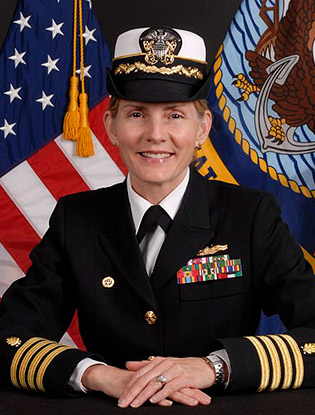Naval Command and Staff Program & JPME Phase I
The Naval Command and Staff (NC&S) online program educates students on the fundamentals of U.S. national security policy, military strategy, and the relationship between them. The program is organized into six courses and all courses must be completed to earn Joint Professional Military Education (JPME) Phase I credit.

General Information
Eligibility
Active and reserve officers in the Navy, Marine Corps, and Coast Guard must be in the grade of O3 and above. Active and reserve officers in other military services must be in the grade of O4 and above. In addition, defense-related civilian applicants (GS11 and above) are eligible for enrollment. All applicants applying for this program must possess a Baccalaureate Degree.Location & Duration
Classes are taught using Blackboard, the Learning Management System, and students can take these classes anywhere using a compatible computer or mobile device. The duration of this program typically lasts 46 weeks.Learning Format
Courses are primarily taught using online discussion boards, group projects, individual essays, and other assignments.Outcome
Students that complete the Online Program are awarded JPME Phase I credit.Program Structure
NC&S Program
1: Fundamentals of Strategy
Required | Core Course2: Leadership in the Profession of Arms
Required | Core Course3: Theater Security Decision Making
Required | Core Course4: Operational Art
Required | Core Course5: Joint Capabilities
Required | Core Course6: Joint Planning Process
Required | Core CourseIncoming Students
More Information
The Online Program is offered four times per year; interested applicants must submit an online application for review to determine if the student meets the eligibility requirements.
Online Electives
The U.S. Naval War College (NWC), Online Program offers online electives for students in the Graduate Degree Program (GDP). All elective work, including these NWC online electives, must be approved by the GDP Manager. Once approved, students may register for an online elective.











